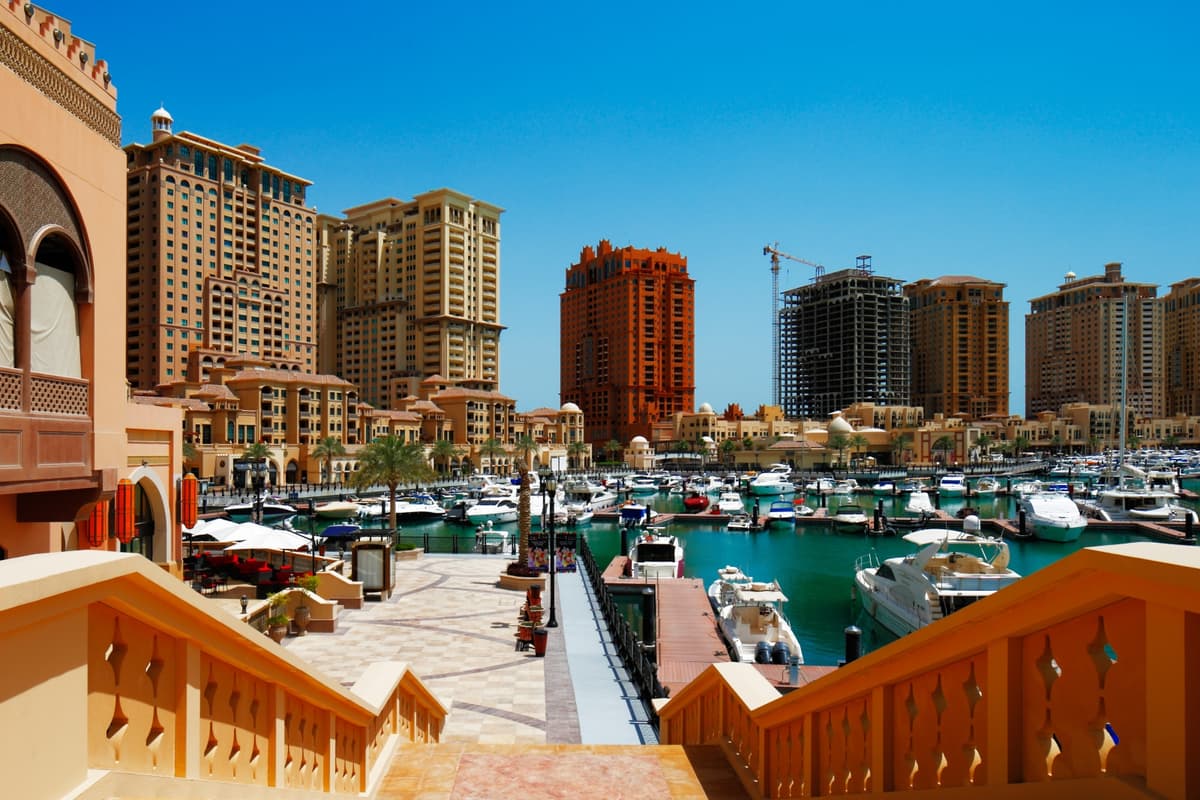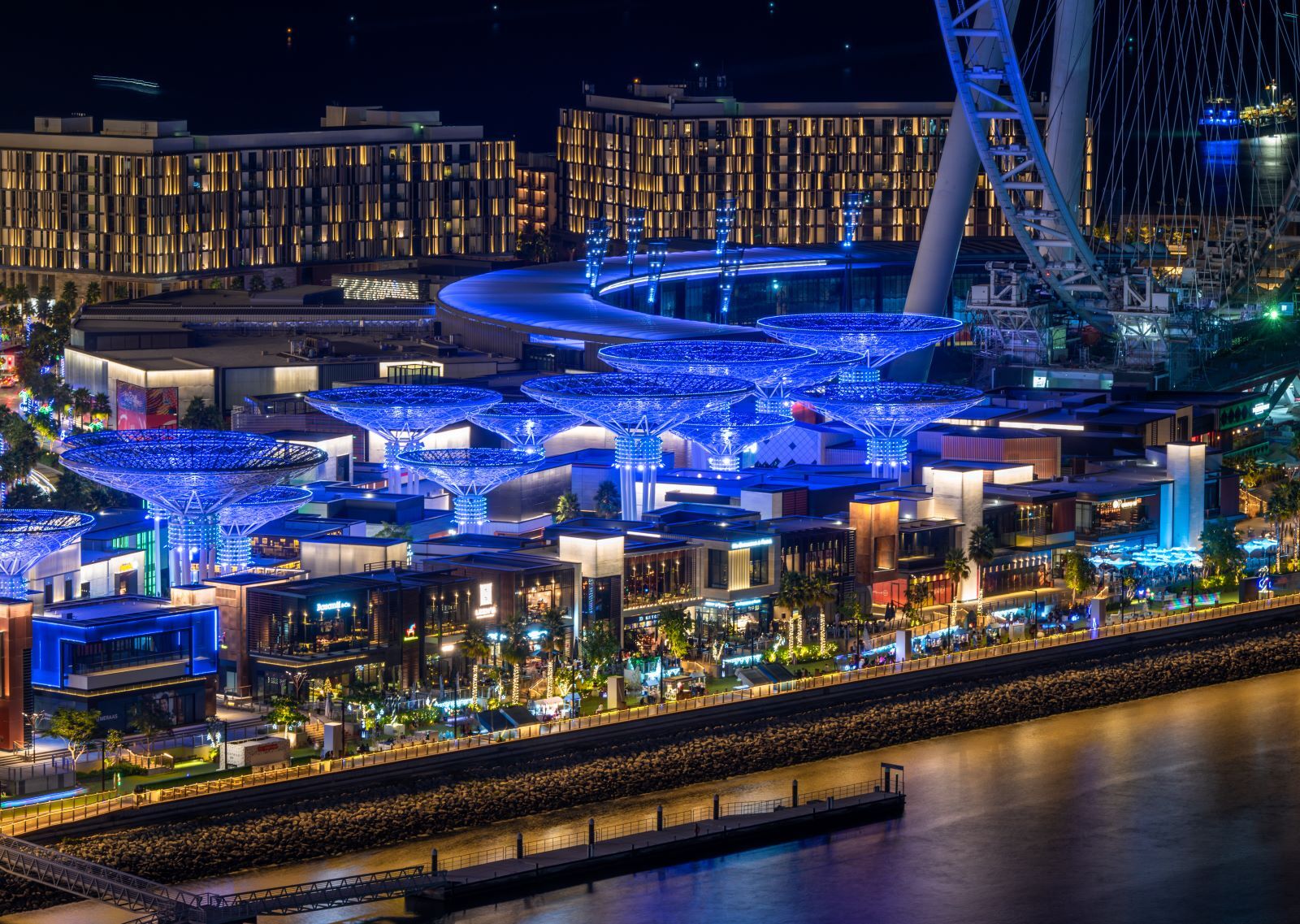A Journey Through the Richest Countries in the World
Published: 11 July 2024
Exploring different parts of the world reveals not just diverse cultures and landscapes, but also stark contrasts in living standards. From the glamorous streets of fashion hubs to the bustling financial districts of skyscraper-filled cities, this list highlights the richest countries in the world, ideal for those who like to live in style. These countries stand out due to a unique blend of economic factors, societal norms, and geographical characteristics that contribute to their high costs of housing, food, healthcare, and other essentials.


The 10 Richest Countries in the World
Our guide showcases the richest countries in the world using GDP per capita at current prices, adjusted for Purchasing Power Parity (PPP). This method offers a more accurate reflection of individual prosperity and economic strength across nations. Expressed in international dollars (Int$) per capita, the calculations are effective for comparing wealth as it accounts for the cost of living and inflation differences. All details and figures are sourced from the International Monetary Fund (IMF), for credibility and accuracy.
Also Read: World's Richest Cities
1. Luxembourg – 143,740 Int$
Luxembourg is considered the richest country in the world due to its strategic central European location, robust financial sector, and diverse economy. Nearly half of its workforce commutes from neighbouring countries, contributing to its GDP without residing there. Hosting around 130 banking institutions, Luxembourg benefits from constant global cash flow. It uses its wealth to ensure high living standards, top-notch healthcare, and education for its citizens, who enjoy the highest living standards in the Eurozone. Additionally, Luxembourg attracts tourists with its scenic castles, beautiful countryside, and cultural festivals. It was also one of the first countries to offer free public transport and has the highest minimum wage globally.
2. Macau SAR – 134,140 Int$
Macau, a Special Administrative Region of China, is one of the richest regions globally, driven primarily by its thriving casino industry. Often referred to as the "Las Vegas of Asia," Macau is home to over 40 casinos spread across 30 square kilometres, making it a top travel destination in Asia. This narrow peninsula, home to about 700,000 people, has seen significant wealth growth since its gaming industry was liberalised in 2001. Macau's historical significance as the first and last European colony in Asia, combined with its strategic location next to Hong Kong, has further fuelled its economic success. Despite challenges, Macau continues to prosper as a major global gambling hub.
Also Read: Safest Cities in the World
3. Ireland – 133,900 Int$
Ireland, with about 5.1 million inhabitants, has become one of the richest countries in Europe. Despite being severely impacted by the 2008-09 financial crisis, through politically challenging reforms, including cuts to public-sector wages and banking restructuring, Ireland regained fiscal health, boosted employment, and saw exponential per capita GDP growth. Its 12.5% corporate tax rate, among the lowest globally, attracts multinationals like Google and Apple, leveraging Ireland's skilled, English-speaking workforce. Pro-globalisation economic policies and significant foreign direct investment further boost Ireland's wealth. EU membership privileges and subsidies, coupled with shrewd budget policies, enhance Ireland's economic standing, attracting numerous large firms to establish their European bases there.
4. Singapore – 133,740 Int$
Singapore's economic success is rooted in strategic policies and visionary leadership. Under Prime Minister Lee Kuan Yew (1959-1990), Singapore focused on leveraging the shared values of its diverse ethnic groups, investing in private banking, shipbuilding, and electronics. Despite starting with a 50% illiteracy rate and no natural resources, Singapore adopted low corporate tax rates, minimal regulations, and capitalised on its strategically located port. These measures transformed it into one of the world's most business-friendly environments. Today, it has a 98% literacy rate, and a thriving economy based on financial services, advanced technologies, and international trade, bolstered by its key position on vital East-West shipping routes. Social services like housing and healthcare further support its robust economic framework.
Also Read: Cleanest Cities in the World
5. Qatar – 112,280 Int$
Qatar's wealth primarily stems from its vast oil, gas, and petrochemical reserves. In comparison to its relatively small population of three million, it boasts the world's third-largest gas reserves, holding over 15% of proven global reserves. This abundance in natural resources has consistently propelled Qatar to the top 10 of the richest nations list. The country has strategically invested its wealth in cutting-edge technology, architecture, engineering, and events like the 2022 FIFA World Cup. Qatar has also diversified its economy by boosting tourism and other sectors, further solidifying its financial stability and growth. These careful investments and economic diversification efforts ensure Qatar remains ahead of other oil-rich nations.
6. United Arab Emirates – 96,850 Int$
The United Arab Emirates (UAE) is one of the richest countries due to its dynamic economy and strategic diversification. Initially reliant on fishing, and pearl trading, the discovery of oil in the 1950s transformed the nation. While oil and natural gas remain significant revenue sources, the UAE has also developed its tourism, construction, real estate, trade, and financial sectors. Its cosmopolitan population, with 88.5% comprised of expatriates, benefits from tax-free salaries and year-round sunshine, attracting a global workforce. The country has also recently witnessed one of the largest migrations of HNWI and UHNWI with Dubai being named the wealthiest city in the Middle East, with millionaires surging by nearly 80% over the last decade, according to the World's Wealthiest Cities Report 2024 by Henley & Partners. Dubai is also home to 212 centimillionaires and 15 billionaires. Adored for its pristine beaches, skyscrapers, man-made islands, world records and mega shopping centres, the UAE’s diversified economy ensures sustained wealth and growth, making it the third-largest economy in the Middle East.
Also Read: Most Expensive Thing in The World
7. Switzerland – 91,930 Int$
Switzerland's wealth is driven by its robust financial sector, high-value manufacturing, and exceptional service industries. Renowned for banking, insurance, and tourism, services account for approximately 74% of its GDP. The remaining GDP comes from manufacturing industries that produce pharmaceuticals, precision instruments, machinery, and gems. With a population of about 8.8 million, Switzerland excels in providing high-quality services and maintaining efficient public and private entities. According to the 2023 Global Wealth Report by Credit Suisse, the average wealth per adult in Switzerland is $685,230 and one in six adults own assets worth more than $1 million. Known for its secure banking environment and high living standards, Switzerland remains a global financial hub with a strong industrial base.
8. San Marino – 86,990 Int$
San Marino, Europe's oldest republic and the fifth smallest country, has had significant economic success despite a low population of just 34,000. Its low-income tax rates, about one-third of the EU average, attract wealth and the economy thrives on services and manufacturing, including ceramics, clothing, paints, and wine. Tourism, driven by its picturesque landscape and Mediterranean climate, flourishes, particularly in colder seasons. Historically strong in merchant banking, San Marino has leveraged its extensive networks and expertise to adapt to modern trade and industrialisation. This microstate enjoys one of the lowest poverty rates globally, reflecting its effective, transparent taxation and economic policies.
Also Read: Most Expensive Properties in Dubai
9. United States of America – 85,370 Int$
The United States is one of the richest nations not just due to its abundant natural resources, including gold, silver, and hydrocarbons but also as home to some of the biggest companies in the world. Microsoft, Apple, Google, Amazon, Meta, and Visa are just some of the names that started and have their base in the US. The country also has a massive tourism sector and a large entertainment sector. Its geographic isolation has provided security, allowing significant investment in specialised industries like biotechnology, engineering, and computer technology. The U.S. has the largest GDP globally, driven by its vast domestic market and home to leading tech, financial, and industrial companies. Despite its large population of 340 million, significantly higher than the combined population of all the countries on this list, the U.S. remains a powerful economy with a diverse industrial base and a highly innovative and competitive business environment.
10. Norway – 82,820 Int$
Norway rounds up this list as the 10th richest country in the world, offering one of the highest standards of living. Norway's economy has been fuelled by oil since the discovery of large offshore reserves in the late 1960s. It is the top producer of petroleum in Western Europe, and the country has capitalised on rising prices over the years. The offshore sector has played a significant role in the Norwegian economy during the last 200 years, with the oil and gas industry expected to contribute nearly 24% to the total GDP in 2024. Norway also has a strong legal system and fosters an innovative commercial environment allowing other businesses to flourish with Norwegian companies being industry leaders in several fields globally. The currency known as the Norwegian 'Kroner' stands singular in the global economy and the country also offers one of the highest minimum wages in the world.
Final Take
Various factors contribute to what makes these countries the richest in the world. Many countries on this list often feature small populations with disproportionately large economies. Dividing GDP by population highlights this disparity. The compilation in this article is based on IMF statistics, there may be other countries in general opinion that would classify as some of the richest countries, but recent data is not immediately available.



